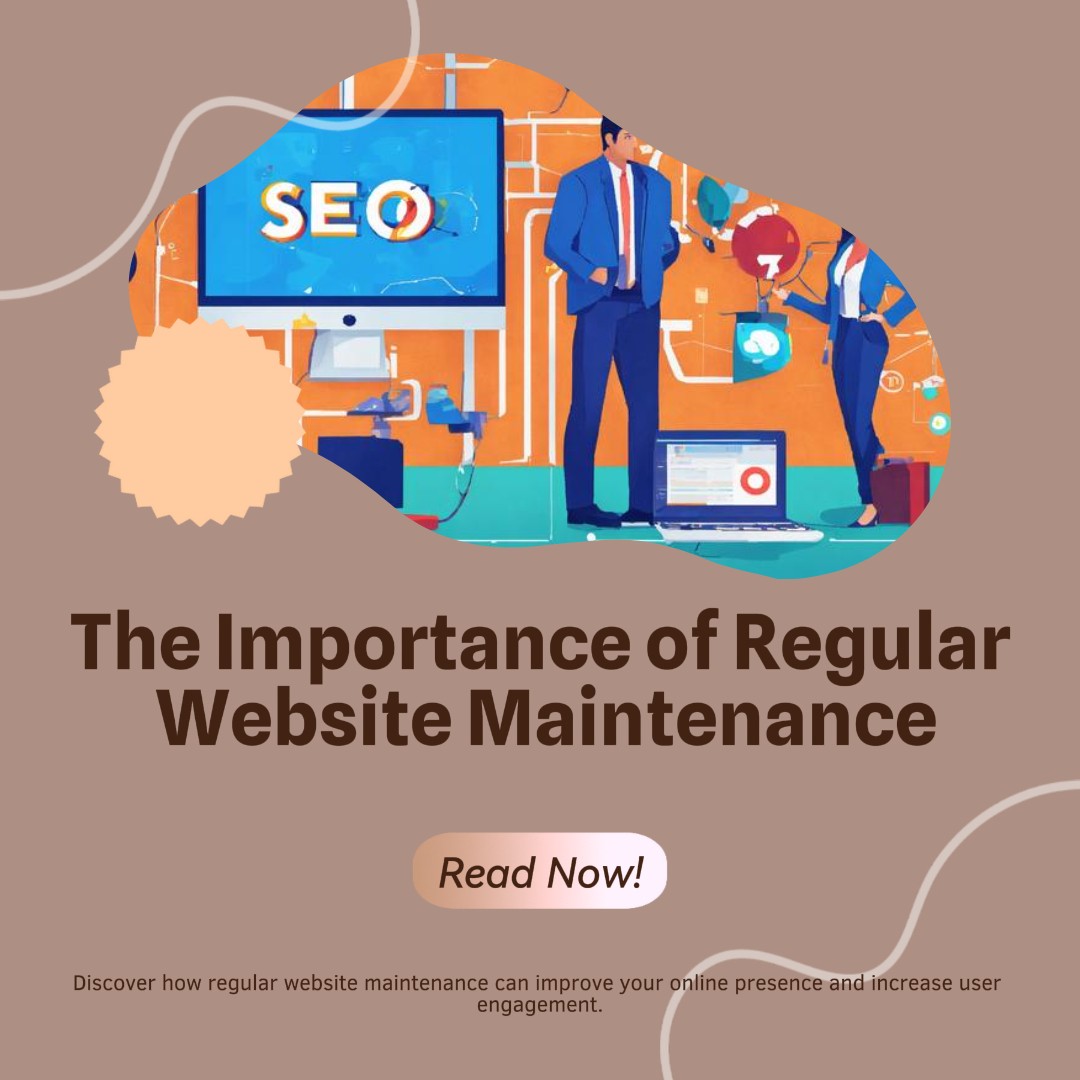The pace at which this digital world is running is so fast that one needs to be updated about all the happenings occurring in his surroundings, let alone Search Engine Optimization. SEO has immensely changed in these years, and AI is contributing to shaping modern trends related to search engine optimization imperatively. It can help seasoned marketers or small business entrepreneurs who want to make sure their presence is asserted online in helping them achieve that elusive competitive edge.
Artificial Intelligence is no more the staple of science fiction movies but a modern-day reality which is gradually seeping into most industries, digital marketing being no exception. In the most literal sense, AI refers to machinery with the capacity to simulate human intelligence in making decisions and learning from experience. But what does that exactly mean for businesses and marketers in the context of SEO? Slightly differently explained, AI reprocesses the thought of search engine optimization by making the practice a lot more efficient, effective, and friendly for the end user.
Table of Contents
Understanding AI and Its Growing Importance in SEO
But before we begin to explain how AI is going to revolutionize the world of SEO, let’s define what actually AI is. Artificial Intelligence refers to a range of technologies that allow machines to perform tasks more normally requiring human intelligence-from the most simple forms of machine learning and natural language processing to more complicated neural networks and deep learning.
Why is AI so important in SEO? The answer lies in how that amount of data is being processed and interpreted at speeds that no human can. As it were, search engines like Google have always relied on AI to understand the search queries, rank websites, and show users the most relevant content. That is, in order to compete in the SEO game, one needs to know how AI works and how it can be leveraged toward optimizing one’s website.
How Search Engines Use AI
Search engines act almost as the internet’s gatekeepers, and they use AI to make sure users find what they need. Such search giants as Google use several AI-influenced algorithms like RankBrain and BERT with the intention of improving the search results.
RankBrain: The term describes artificial intelligence developed by Google to help process the query of searches. It deploys machine learning to decipher what a query really means, even if it is something which the system has never come across. Particularly useful for handling long-tail keywords and complex searches.
BERT: This was launched in 2019. It helps Google understand the context in which words are used within searches, especially subtleties of language. This allows the search engine to better discern intent from the search to deliver more accurate results.
On the flip side, these AI-driven systems turn the search engines smarter, which means SEO strategies too need a change. Gone are the days when one could keyword-stuff their content; this is about understanding-and aligning with-the intent behind the searches.
AI-Powered Tools for SEO
The most impactful way AI is going to influence SEO is through the range of tools and software that marketers are going to start utilizing. AI-driven SEO tools will be able to automate and enhance most facets of SEO, including keyword research, content optimization, backlink analysis, and technical SEO audits.
Keyword Research: AI-powered tools can unearth, through big data analysis, what is trending in your niche currently and what will be in the future, and even suggest keywords related that you may not have considered yourself.
Content Optimization: Tools like Clear scope and MarketMuse use AI to scan the highest-ranking content in your niche for suggested content improvements that will help you improve your ranking. That might include how to use keywords, structure the content, and make it more readable.
Backlink Analysis: AI-driven tools crawl the web for uncovering backlink opportunities, grading the quality of potential links, and even forecasting what those effects could be on your SEO.
By using these tools, time and effort are saved by a business. Most importantly, it helps them make data-driven decisions toward better SEO performance.
The Benefits of AI in Keyword Research
Of course, keyword research is one of the most basic elements of SEO, but even that has now been revolutionized by AI. Traditionally, this was a lot of analysis and guessing with trial and error. Contrarily, AI can go through copious amounts of data in a split second and show you what is most relevant and should work for your content.
Predictive Analysis: AI, using existing trends and past performance results, can make a necessary prediction of what keywords can turn out to be great performers in the future. It ensures that marketers target only those keywords that will most probably drive long-term traffic.
User Intent:AI would also help with finding out what users really intend behind certain keywords, hence ensuring your content is optimized for what is actually being searched for. This becomes crucial for voice search and natural language queries.
More accurate, more effective, and productive, AI-driven keyword research indeed seems to be that game-changing thing that SEO professionals were waiting for.
AI and Content Creation: A New Era
While content is king, high-ranking content on the search engines is no easy feat. AI is changing the game in terms of content creation and helping writers and marketers create better content in record time.
Content Creation: AI-enabled technologies, such as the Generative Pre-trained Transformer, are able to create content based on specific guidelines and keywords. Although such tools cannot completely replace human ingenuity and creativity, they can indeed be very helpful with the ideation process, creation of drafts, and even creation of complete articles on less complex subjects.
AI Optimization of Content: It can analyze the existing content and give improvements in readability, keyword density, and overall engagement. Several tools use the power of AI, including Grammarly and Hemingway Editor, which polish the work of writers by making their content grammatically correct, more engaging, and easily readable.
This is possible because the power of AI integrated into content creation allows marketers to create more in less time and with added assurance that it’s optimized for search engines.
AI in SEO Analytics and Reporting
Data is always at the core of a successful SEO strategy, and AI is turning that data capture, analysis, and reporting on its head. Traditional SEO analytics involve sifting through hundreds of thousands of data points to look for trends and insight. AI, however, automates this process, making it faster and more accurate.
Data Analysis: AI will analyze large datasets for patterns, trends, and correlations that are not obvious. Therefore, marketers can make wiser decisions on how to implement their SEO strategy from this.
Automatic Reporting: Artificial Intelligence-powered tools can create SEO reports automatically, with all key metrics, trends, and opportunities included in them. This saves loads of time and makes sure the reports are timely and correct.
AI-powered analytics and reporting drive insights from data that power business decisions, hence letting businesses achieve so much greater success with their SEO strategies.
Voice Search and AI: The Next Big Thing?
While the rise of smart speakers, such as Alexa from Amazon and Google Home, is increasing, so does the tendency to use voice search for obtaining information online. This opens up a completely new set of challenges and opportunities for SEO.
Natural Language Processing: The more mature and conversational kind of language put into a search query is understood and processed through NLP under AI. With the application of AI, search engines are able to understand more mature and conversational types of search queries.
Long-tail keywords: It shows a particular question that a user has put up through voice instead of in the case of a text search. AI can find these long-tail keywords and further help in optimizing for voice search.
It goes without saying that with the rise in voice search, optimization for the same would be very important, and AI is going to play the most central role in letting businesses adapt to this new trend of searching.
How AI Improves User Experience (UX) in SEO
UX influences SEO to a great degree and is aided by AI in many ways. In fact, this Google makes fairly clear: UX is among the key ranking factors, and AI can aid in tuning the website for better user experience.
AI personalization: Analyzes user behavior and preferences to bring out relevant information and recommendations. This would increase interest and reduce bounces, which is key from the point of view of SEO.
Website Optimization: Your website performance can be analyzed via AI-driven tools-not only for monitoring but also providing feedback for improvement. These could be in the form of optimization for speed, building mobile gains, or navigation.
By improving UX, AI ensures that your website performs well regarding ranking and is also nice to use, thereby improving SEO.
The Challenges of AI in SEO
While there is a lot of advantages in the use of AI in SEO, the path ahead is not without its challenges. Strong trust in AI tools will lead to the complete destruction of creativity and originality within the content. Algorithms of AI are imperfect, too, and one always risks errors or biases within the data being handled.
Not to mention the ethics problem: AI is going to keep permeating deeper and more aspects of SEO. As that happens, questions need to be raised-if AI-driven algorithms are just and transparent in all manners. Are they giving all websites equal opportunity to rank, or do they favor certain kinds of content or websites?
Complex: It can be complicated and heavy to understand, particularly by people who aren’t ‘techie’. This in turn influences the decision of small businesses or just mere individual marketers to refrain from getting a full grasp of AI in their SEO strategies.
Having at least these drawbacks in consideration, AI proves its worth in SEO with its benefits outweighing the drawbacks. However, AI use is best as a complementary tool for your SEO strategy, and not to base it completely on.
The Future of AI in SEO
So, what does the future hold for AI in SEO? As AI technology continues to evolve, it’s expected to play even bigger roles that could shape up the way one develops their SEO strategies. A look at a few predictions:
More Advanced Algorithms: As AI technologies continue to grow, so too will search engines have to, making more advanced algorithms-light years beyond what currently exist-which will better understand and process even the most complex queries. This, of course, means that SEO will continue to be more difficult yet rewarding for those that truly master it.
More personalization:
AI will continue to provide a more profound level of personalization in search results, personalizing them increasingly to the tastes and trends of the individual user. Knowing your audience will be more essential, and you must create content that appeals to their needs.
More Emphasis on User Experience: While AI allows search engines to get a better understanding of users’ behavior, UX will keep on gaining more significance when it comes to SEO. Websites with seamless and engaging experiences will keep receiving higher rewards.
The future of SEO, therefore, is closely tagged to the future of AI. One can only imagine those who learn how to leverage AI will be ahead of the learning curve and will have an edge in this fast-evolving world of SEO.
Conclusion: Embracing AI for a Smarter SEO Strategy
Fundamentally, AI is going to really revolutionize this world of search engine optimization since it keeps on improving, becoming more and more productive, and user-friendly day by day. From keyword research and creation to analytics and reporting, AI supports businesses in devising more efficient SEO strategies that shall not only enable them to survive but also to stay competitive in today’s fast-evolving online world. Challenges surely exist, but the advantages of AI in SEO are not to be gainsaid.
To be successful in a modern SEO landscape with AI means embracing the technology and using it to one’s advantage to outcompete others for high rankings in search engines for more website traffic.
FAQs
1. How does AI impact keyword research?
AI improves keyword research by analyzing large datasets to identify relevant keywords, predict future trends, and understand user intent. This makes keyword research more accurate and efficient
2. Can AI generate content for SEO?
Yes, AI can assist in content creation by generating ideas, writing drafts, and optimizing existing content. However, it’s essential to balance AI-generated content with human creativity to ensure originality.
3. What role does AI play in voice search optimization?
AI plays a crucial role in voice search optimization by understanding natural language queries and identifying long-tail keywords that are common in voice searches. This helps in creating content that ranks well in voice search results.
4. How does AI improve user experience (UX) on websites?
AI enhances UX by personalizing content and recommendations based on user behavior, optimizing website performance, and providing a more engaging and seamless experience for visitors.
5. What are the ethical concerns of using AI in SEO?
Ethical concerns include the potential for biases in AI algorithms, the lack of transparency in AI-driven decisions, and the risk of over-reliance on AI, which can lead to a loss of creativity and originality in content creation.






